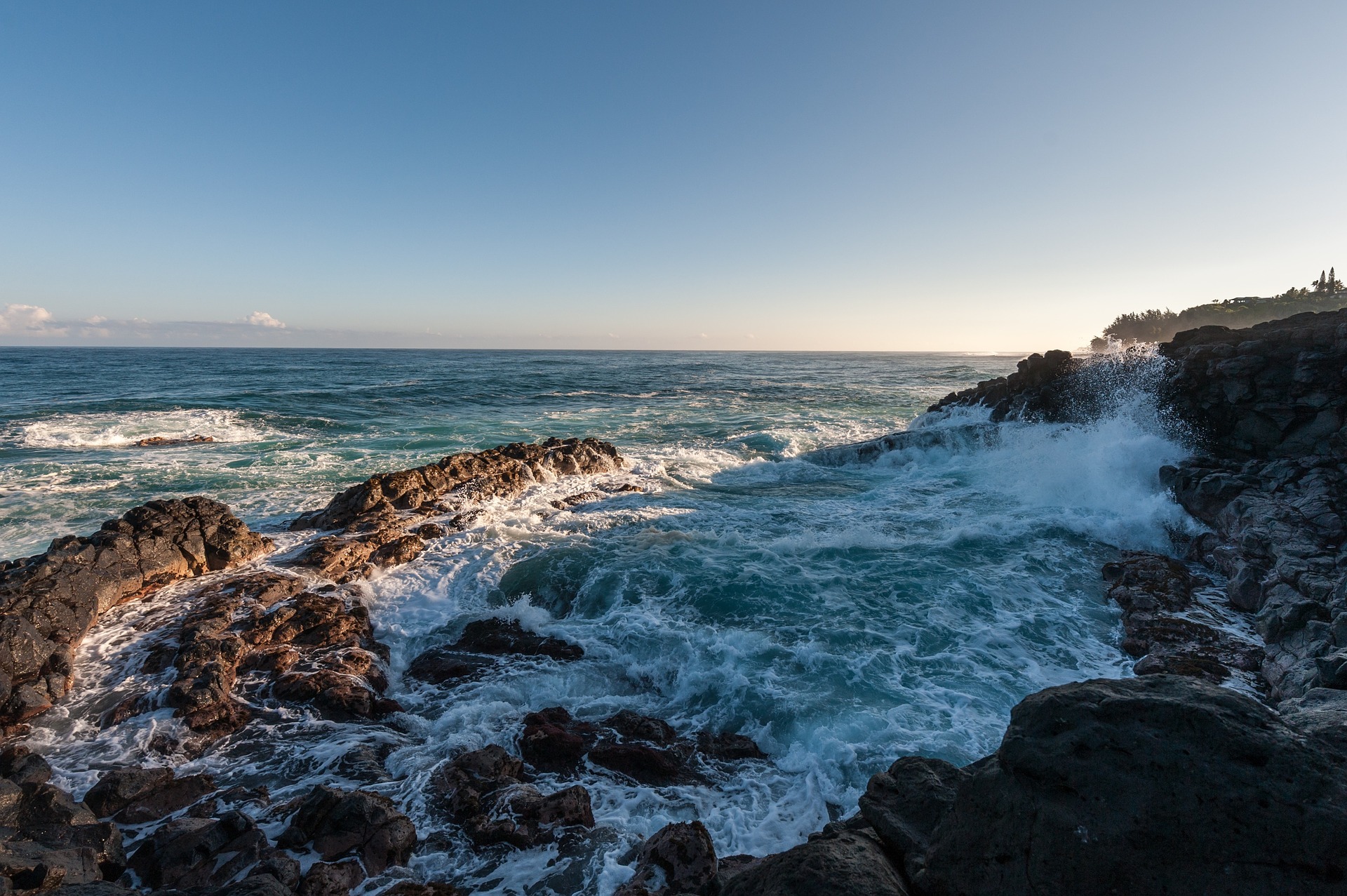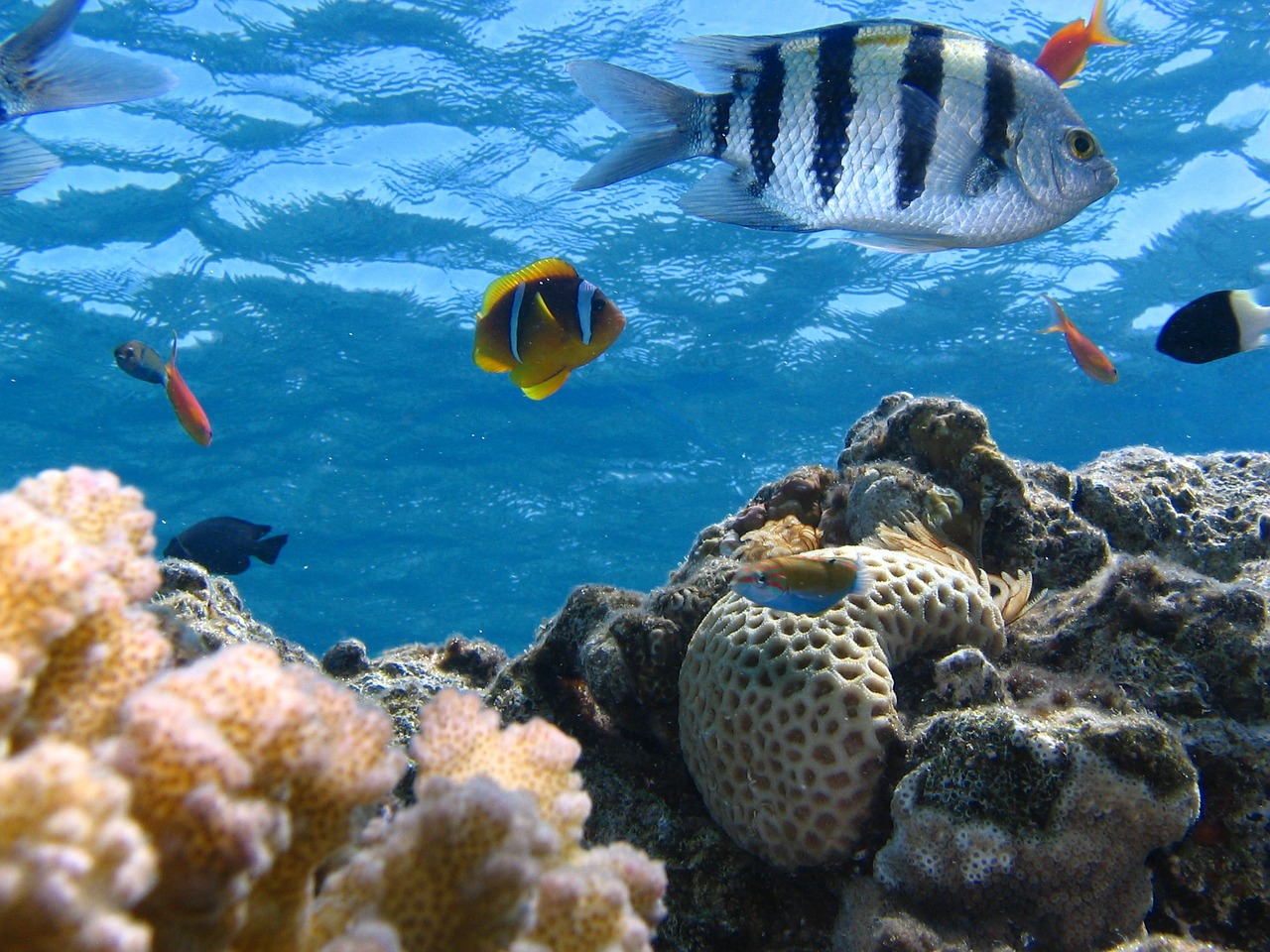For the Future of the Ocean
May 30, 2016
From the time we are very young, no matter where in the world we may live, we are told of the importance of the ocean. As we grow up we begin to understand why.

The ocean is the very heart of our planet. It is home to countless species, it plays a major role in the regulation of our climate and it provides food to people as well as to animals. As we’ve learned more about the complex dynamics of life on earth, some scientists have come to believe that we owe our very existence to the power of the oceans.
Unfortunately, they are in trouble. According to UNESCO there are currently close to 500 dead zones in the oceans, a combined area equivalent to the size of the UK. In these dead zones, the oxygen concentration is so low, marine animals cannot survive.
Land-based sources like manufacturing and agricultural practices account for around 80 percent of marine pollution globally, and every year about 8 million tons of plastic enter an already polluted ocean. The impact of the plastic in these environments has been drawing a significant amount of news coverage in recent months due to the fact that more than 100,000 marine mammals and over 1 million seabirds die every year due to plastic in the water.
Despite the fact that overfishing has been a concern for many years, the situation has become even more critical over time. The FAO estimates that 4.3 billion people worldwide rely on fish as a primary source of animal protein, a crucial nutritional component. Beyond the destruction of ecosystems, the impact on biodiversity, and the problems associated with ghost gear, overfishing also has serious consequences that impact the social and economic well-being of the coastal communities who depend on fish for their way of life.
A day to appreciate the oceans
Of course, many of us are aware of these problems. But it can be difficult to know how to begin to address such big issues.
In an effort to encourage people to make responsible choices and take action to conserve critical ocean resources, the United Nations celebrates World Oceans Day on 8th of June. The annual celebration has grown in importance and now many individuals and organisations all over the world observe the day by participating in marine preservation activities.
In addition to joining official World Oceans Day events, you can aide the ocean in small but significant ways every day. Instead of thinking about the problem as too big to solve, each of us can focus on small but significant steps we can take to personally reduce negative impacts on the marine environment. Among the most important things you can do is to make a smarter choice when you buy seafood.
Certification can help
Just as the global population continues to grow, demand for fish is also increasing. By the year 2050, world population is expected to reach 9.7 billion and the ocean will be unable to meet the global demand for fish. In fact, aquaculture already supplies more than half of the fish consumed around the globe. Improved management of wild fish stocks will place even greater demands on the farmed fish market to meet the world’s protein needs and it’s critical that the industry grows responsibly.
Fish farming has been associated with poor site management, water pollution, disruption of local ecosystems and poor working conditions. However, fish farming can also be done responsibly and in a manner that creates a net benefit to the global environment while reducing pressure on over extended wild fish stocks.

The Aquaculture Stewardship Council (ASC) aims to be the world’s leading certification and labelling programme for responsibly farmed seafood. With its partners, the ASC runs an ambitious programme to transform the world’s seafood markets and promote the best environmental and social aquaculture performance.
The ASC addresses the negative impacts of fish farming, and protects the marine environment by extension, with a global standard that addresses the negative impacts of fish farming. The standards include measures that address the dependence on wild fish for feed; lack of appropriate techniques; discharges of organic matter, phosphorus, and nitrogen; fish escapes; transfer of diseases and parasites between farmed and wild fish and introduction of non-indigenous species.
It also mandates that all workers have freedom of association, employment contracts inline with ILO regulations, no child-labour and that the communities in which farms are situated be consulted on farm operations.
As part of a comprehensive programme that expands the use of responsible practices in the aquaculture industry, the ASC makes a significant contribution to mitigating negative impacts on nature, the environment and the ocean, especially in countries where best practices for environmental and social aspects are not yet the norm.
Consumers should choose certified fish because a robust certification programme can protect the marine environment for the wildlife and people who depend upon it. Importantly, proper working conditions for the people who work on the farm is an essential control that can increase good environmental outcomes. Therefore, the certification should also have a social standard so that the health and safety of those who do this vital work is safeguarded.
How can you help oceans? Rise to the challenge!
It’s a simple fact that, for many of us, the fish we eat is the primary and most frequent contact we have with the ocean. What we spend our money on sends a message to producers and those who decide what to stock in the places where we shop. Therefore, every time we purchase any product in our daily lives, whether we know it consciously or not, we make a powerful choice that reinforces harmful practices or rewards good operators.
As part of our World Oceans Day celebration, the ASC is inviting everyone to take action to show how much they care about our oceans and those whose livelihoods depend upon it. We are issuing a friendly challenge to all of you to have at least one certified seafood meal and share it with the world on social media with the hashtag #conSERVED and #Worldoceansday in the lead up to and on 8th of June.
We’ll all be doing it here at ASC— look out for photos of our staff enjoying certified meals and sharing favourite seafood recipes throughout the coming days— and we hope you’ll join us.
It’s our fun and delicious way to encourage everyone to take action. We have the power to shape the future. By sharing our actions with the world, we hope to increase the awareness about how the seafood we buy to serve at home, the meals we eat at restaurants, and other food choices we make everyday can contribute to the health of our oceans all year round.



